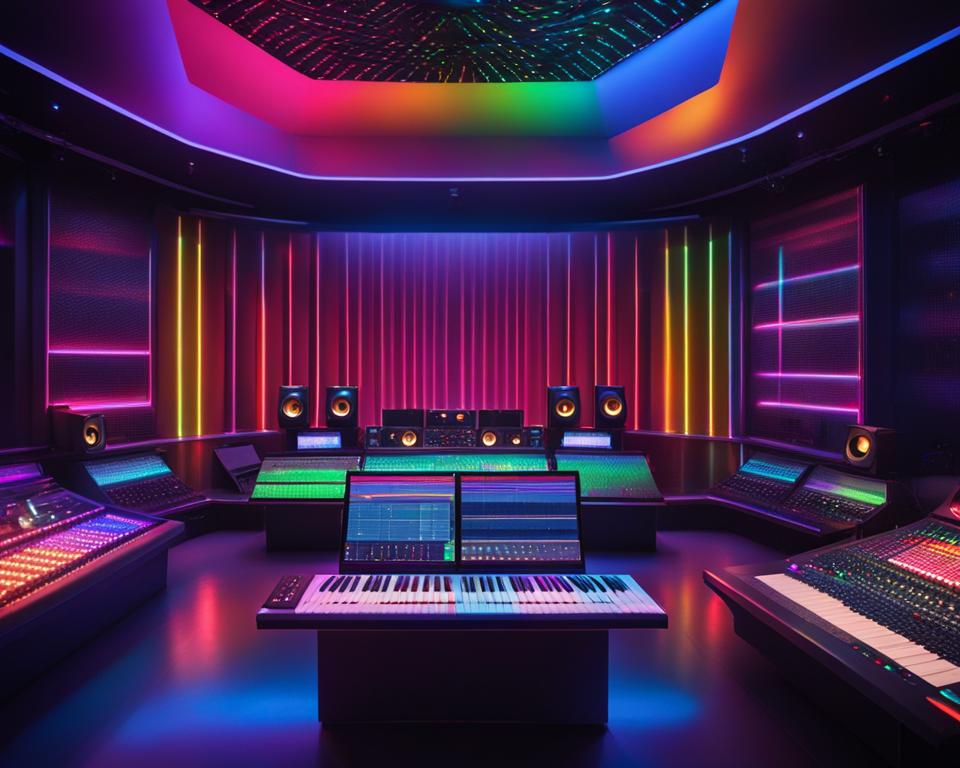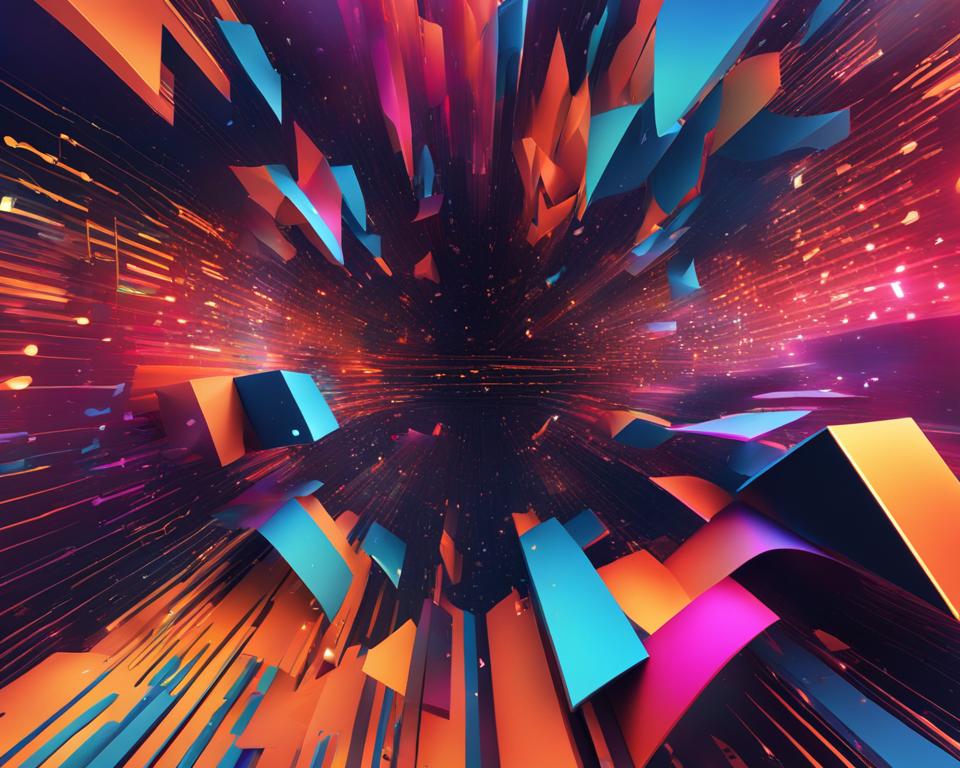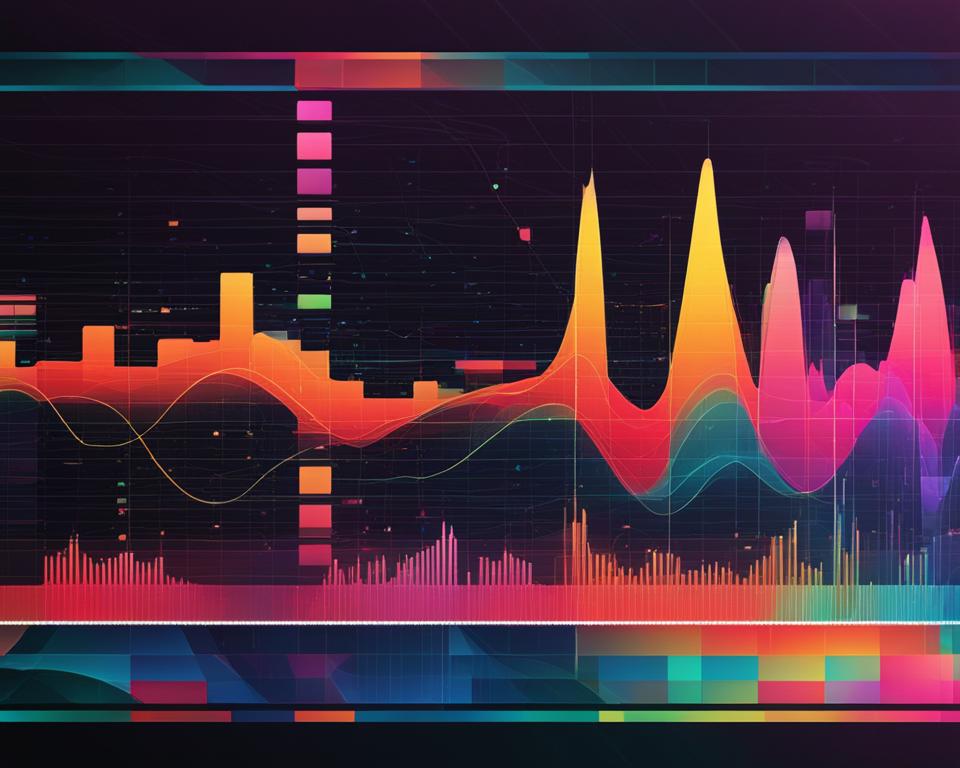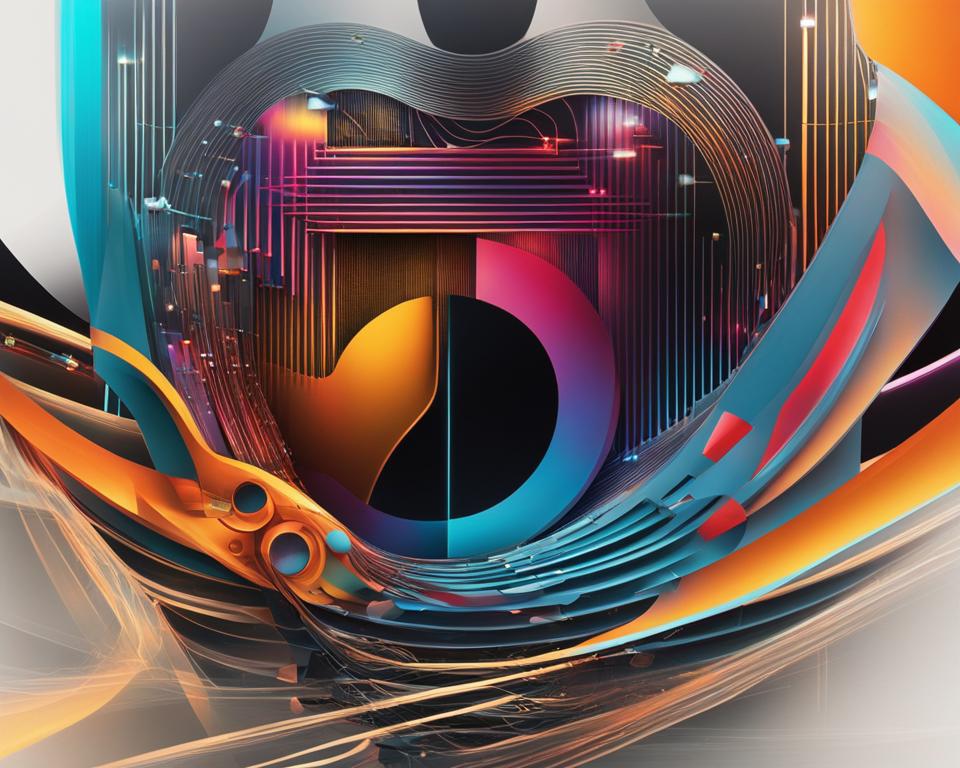As a professional in the music industry, I have witnessed the transformative power of advanced AI music technology. The use of AI in music production has revolutionized the way we approach sound mixing, unlocking new levels of creativity and efficiency. AI music mixing, also known as artificial intelligence music mixing, AI mixing software, AI audio mixing, and smart music mixing, has become an indispensable tool for music producers, mix engineers, and artists alike.
AI music mixing utilizes machine learning algorithms to analyze and optimize audio tracks, resulting in a precise and polished sound. The impact of AI in music creation and production is significant, offering artists new possibilities for their music and democratizing the industry.
In this article, I will explore the various facets of AI music mixing, from automated mixing to music mastering. I will delve into the ways in which AI simplifies music production and enhances sound quality. I will also examine the influence of AI music mixing on artists and the industry, and speculate on the future of AI in music production. Join me on this exciting journey to uncover the cutting-edge technology that is transforming the music industry.
Simplifying Music Production with AI Music Mixing Software
With the advent of AI music mixing, the music production process has become simpler, faster, and more efficient. AI music mixing software automates many aspects of the mixing process, allowing producers to focus on other creative tasks. Automated music mixing enhances accuracy and consistency, resulting in high-quality audio output.
AI-powered music mixing also offers increased precision in EQ and dynamics processing. By analyzing different sound frequencies and waveforms, AI algorithms determine the optimal settings for EQ, compression, and other effects. This improves the overall quality of the mix, producing a polished and balanced sound.
Another significant benefit of AI music production is the consistency it brings to the mixing process. With automated music mixing, producers can ensure that every track sounds the same, regardless of the variables in the mixing environment. This saves time and effort while ensuring that the final product meets the desired specifications.
Real-world examples of AI-powered music mixing software include Auphonic, LANDR, and iZotope Ozone. These software tools showcase the power and potential of AI in revolutionizing the music industry. The impact of AI music mixing software has made a significant difference in music production, with more producers using these tools to streamline their workflow and improve the final product.
“AI-powered music mixing software automates many aspects of the mixing process, allowing producers to focus on other creative tasks.”
Enhancing Sound Quality with AI Music Mastering
AI music mastering is a powerful tool that can optimize audio tracks for superior sound quality. Through its advanced algorithms, AI can identify and address issues with audio clarity, balance, and overall sonic quality, resulting in a polished and professional sound.
Using AI for music mastering has numerous benefits. For one, it can significantly reduce the time and resources needed for the process. In addition, AI can produce consistent results across large quantities of audio, ensuring that each track meets the same high standards. It can also detect imperfections that may be difficult or impossible for a human ear to identify, resulting in a cleaner sound overall.
However, while AI music mastering is an impressive technology, it does have certain limitations and challenges. For example, the algorithms may struggle with tracks that are heavily distorted or compressed, and may not produce the desired result. Additionally, some audio professionals feel that AI music mastering takes away from the creative process, removing the human touch from the art of sound mixing.
Despite these challenges, the future of AI music mastering looks bright. As the technology continues to evolve, we can expect even more advanced algorithms that can address a wider range of audio imperfections. Additionally, AI may become an indispensable tool for artists and producers who want to achieve a professional sound without breaking the bank.
The Influence of AI Music Mixing on Artists and the Industry
AI music mixing has revolutionized the music industry by democratizing the production of quality music. With limited resources, artists can now create professional-sounding tracks using AI audio mixing software. At the same time, music producers and mix engineers are leveraging advanced AI tools to streamline and augment their creative process with machine learning music mixing techniques. These innovations have not only increased efficiency but have also driven new levels of precision, consistency, and creativity in music production.
Despite the benefits of AI audio mixing, there remain concerns about the role of AI in music creation. Some critics argue that AI-driven music lacks the soul and authenticity of human-created music. However, feedback from artists and industry professionals who have used AI music mixing tools has been largely positive. They value the time-saving and creative benefits of AI, particularly with repetitive and tedious tasks.
A potential challenge to the music industry is that AI development could lead to the displacement of human music producers, mix engineers, and mastering engineers. However, as AI music mixing technology continues to evolve, its potential as a creative collaborator for artists also grows. In the future, AI-powered assistants may help artists with music composition, lyrics writing, and chord progressions, opening up new opportunities for creative exploration.
“The use of AI in music production has transformed my workflow. With smart music mixing technology, I can experiment more freely, and achieve better production quality with less time.” – DJ Clark Kent, Music Producer
The Future of AI Music Mixing
As we look ahead to the future of music production, it’s clear that AI music mixing will play an increasingly important role. With emerging technologies such as deep learning and neural networks, the possibilities for AI-level music creation and mixing are endlessly exciting.
The potential of AI-generated music has already been demonstrated through examples such as Aiva, an AI composer that has created original works for various commercial projects. It’s conceivable that in the future, AI could be used as a creative collaborator for artists, offering suggestions and augmenting the creative process in ways that were previously unimaginable.
However, as with any emerging technology, there are also ethical considerations and challenges that must be addressed. For example, who will own the rights to AI-generated music? And how will we ensure that AI music mixing remains a tool for creativity rather than a replacement for human talent?
Despite these challenges, I remain optimistic about the future of AI music mixing. As the technology continues to evolve, I believe we’ll see new and exciting ways for artists and producers to harness its power and create truly groundbreaking music. The possibilities are endless, and I can’t wait to see what the future holds for smart music mixing.




